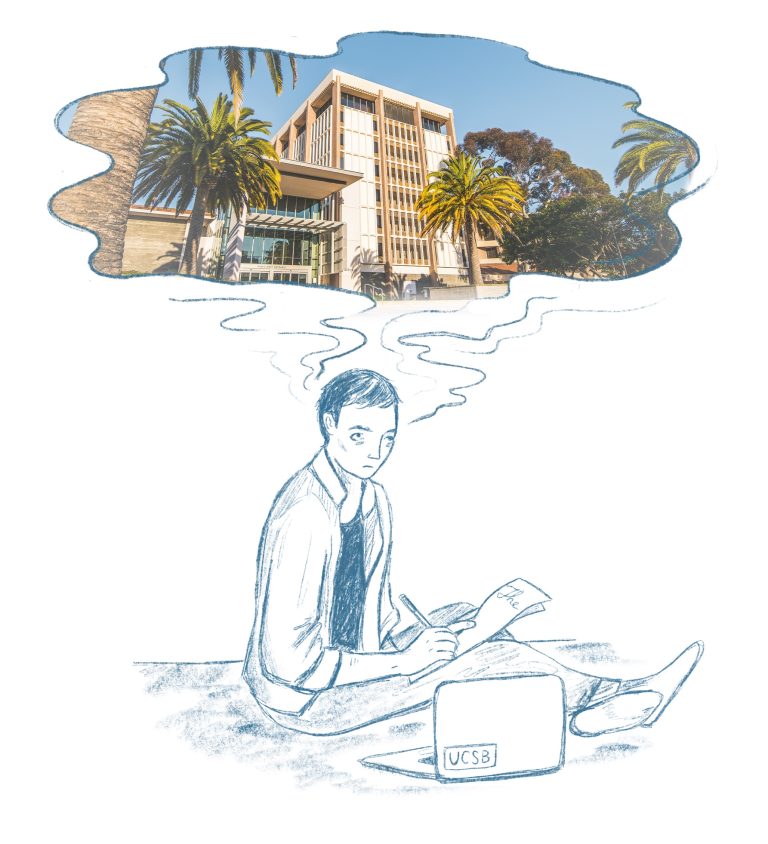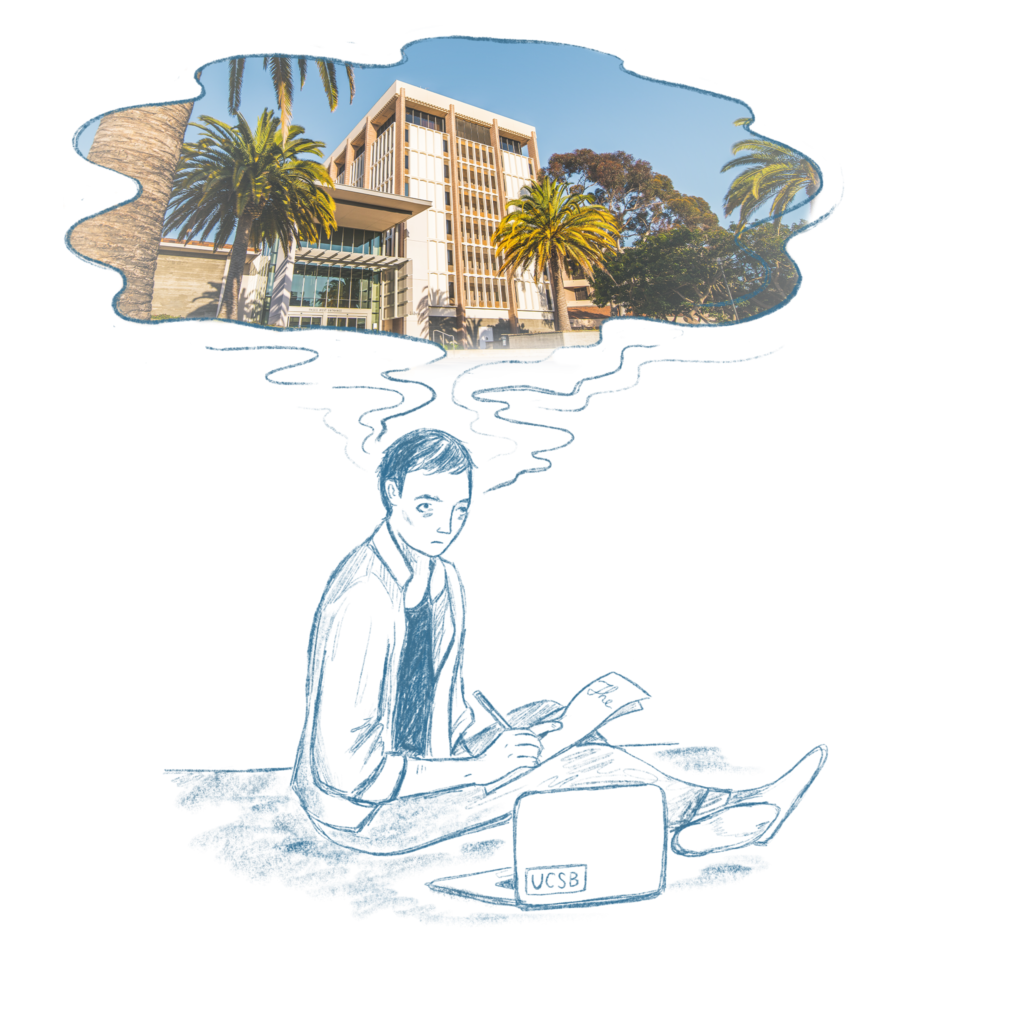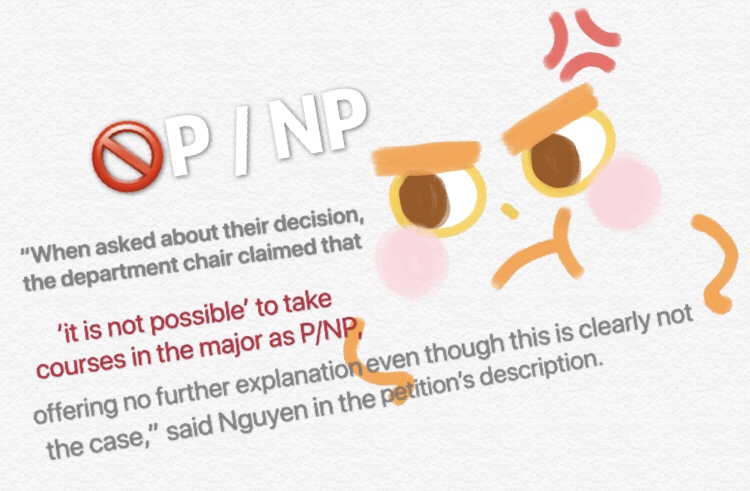

Lauren Luna
Staff Writer
On April 1, UC Santa Barbara’s (UCSB) Department of Undergraduate Education and Academic Advising division sent out an email notifying students that undergraduate departments could “opt-in” to a policy allowing students to take their major classes as passed/not passed (P/NP). On April 17, the deadline for departments to choose to opt-in to the passed/not passed system expired.
Several prestigious universities including UC Berkeley, Columbia, and Yale have adopted the universal passed/not passed system, which makes all undergraduate classes, regardless of major, available as pass/no pass. While schools typically restrict pass/no pass units to only a fraction of total units accumulated, some administrative boards have assessed the current pandemic as an exception to this regulation.
“The campus has faced tremendous challenges in light of the COVID-19 pandemic,” said UC Berkeley’s administration in an email sent out to students on March 20. “Guiding the decision making has been the principle of prioritizing the health and well-being of the community.”
UCSB’s administration chose to leave the P/NP grading option up to each department. Departments that chose to opt-in include the mathematics, psychological & brain sciences, and history of art and architecture departments.
At face value, establishing a universal passed/not passed system seems to be an overreaction to circumstances that supposedly only require students to stay inside. But, the effects of COVID-19 on the student population are not confined to the vague inconveniences of quarantine.
With the shutdown of most on-campus operations as well as businesses in Isla Vista, many students have found themselves out of jobs. Many students depend on their wages from these jobs to pay rent, subsidize tuition, and buy basic necessities like groceries and textbooks. Some of these students also do not qualify for any governmental help if they are claimed as dependents by their parents, making their living situations even more stressful.
Some students also lack the advantage of a stable learning environment. Students staying in Isla Vista may live with multiple people, some of which may or not fully adhere to the conditions of the stay-at-home order and jeopardize their other housemates. Some students living at home live in small apartments with little Internet access or a lack of quiet space. People have also witnessed an incline in domestic violence cases during the stay-at-home order; for school administrators to not consider how potentially dangerous a student’s home life may be is extremely irresponsible.
Additionally, redesigning a traditional class as an online course does not always translate smoothly. Not everyone is an autodidact; online school is not always feasible, especially when considering students with learning differences and other unusual circumstances.
Some professors have restructured their courses while taking the varying privileges of each student into account. Yet even with the awareness that some professors have towards the advantages — or lack thereof — that their students have, others fail to recognize that the pandemic has made it increasingly difficult for students to perform at their highest potential.
Students have rallied against departments deciding to opt-out of the passed/not passed system with waves of concerned emails, most of which have been met with the same negation. Recently, second-year economics student Hao Nguyen drafted a petition for the economics department to opt into the passed/not passed system. At the time of writing this article, the petition had 741 signatures.

“We are asking collectively that UC Santa Barbara’s economics and economics and accounting department opt-in to the P/NP waiver for the spring 2020 quarter [to] offer fair grading treatment to all the departments on campus, to reduce some of the stresses placed on economics students, [and to] keep economics students’ GPA competitive and give them a fighting chance in the job market against the other 22M unemployed people who have experience.”
By adopting a universal passed/not passed system, UCSB would demonstrate awareness towards the nuanced ways in which COVID-19 impacts their students. The pandemic hasn’t simply forced us to stay inside; students may struggle learning material independently or need to fight for their own livelihoods during this time. The virus is not the only assailant in this crisis; a universal pass/no pass system would create a level playing field.










